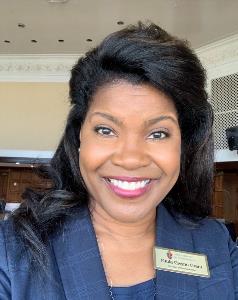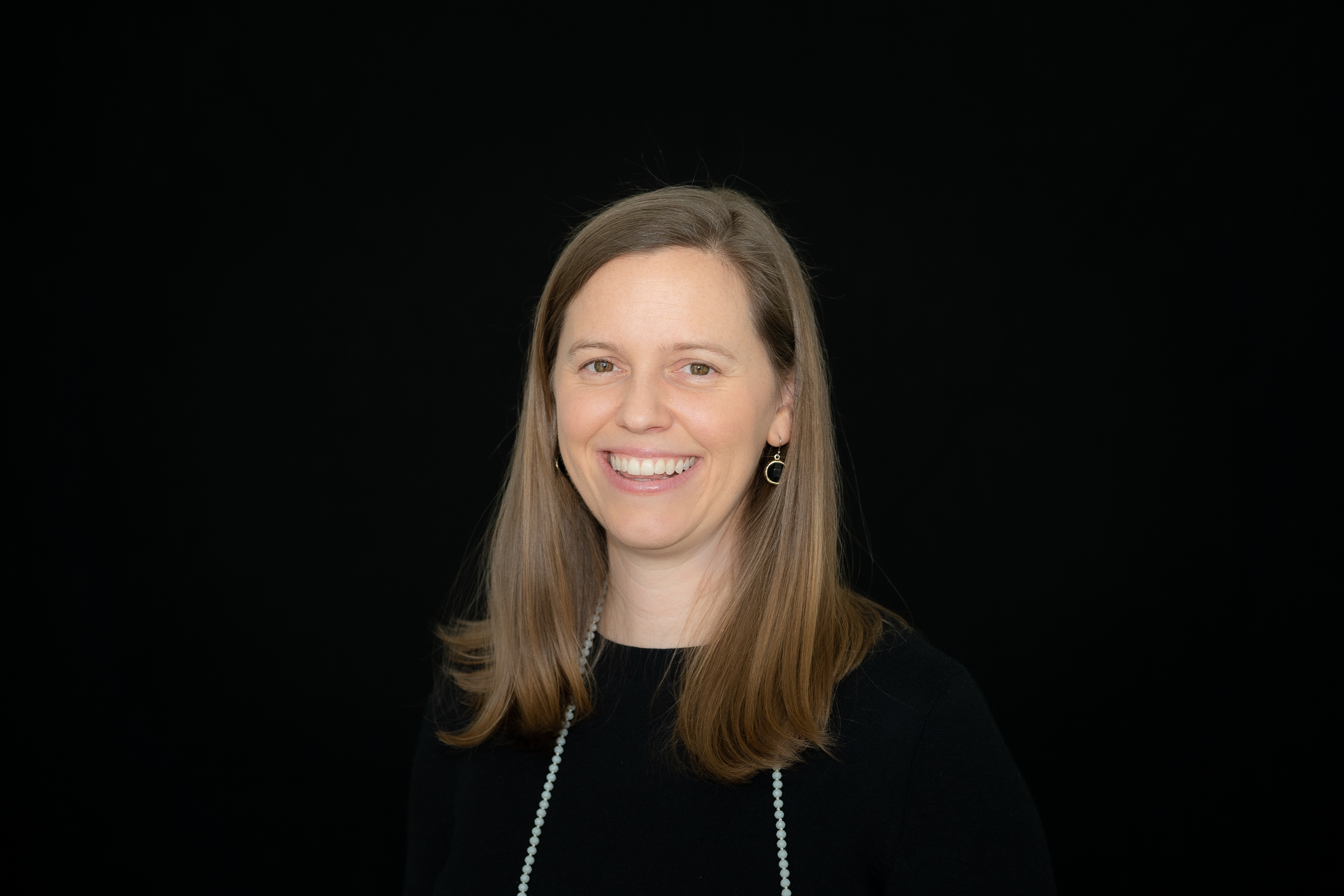Paula Gwynn Grant on Making Connections
By Amy Jacques
May 2022
Name: Paula Gwynn Grant
Title: Secretary for Communications (CCO) – The Roman Catholic Archdiocese of Washington
Location: Washington, D.C.
Job highlights: Director of Communications for The Roman Catholic Archdiocese of Atlanta, On-Air Personality and Producer for National Public Radio and PBS Television
Favorite downtime activity: Reading while listening to all kinds of music/watching documentaries and cooking television shows
Any three dinner guests: The Virgin Mary, Frederick Douglass and Marian Anderson
Best advice: Be kind to everyone you work with — no matter their position — and you will experience true teamwork.
Favorite quote: “You can do some rather extraordinary things if that’s what you really believe.” — Toni Morrison

What was your dream job growing up?
I wanted to be a FM radio deejay and used to practice in my room with my cassette-tape recorder. I listened to and recorded music I heard on the radio, and thought the deejays were genius at what they did.
As I got into my teens, I also set my eyes on being a television news anchor. For over 30 years, I have been fortunate to experience my dream jobs as an Emmy-award winning television on-air host and producer and award-winning music and talk radio deejay/producer. Dreams do come true!
You were Miss Black America in 1989 — how did that help launch your career?
The win helped me attract and experience unexpected, outstanding opportunities on many different levels. I grew in my professional speaking/presentation skills, including handling myself in impromptu situations as well as working with people of all ages from small children to senior citizens.
I also grew so much as a person. (I was only 22 at the time!) I had just graduated the year before from the University of Maryland, College Park with a Bachelor’s degree in Radio, Television, and Film and a minor in Spanish when I won the crown in 1989.
I was in my first full-time job as an associate producer at Black Entertainment Television (BET) when I took a week vacation and did the Miss Black America pageant. My goal was simply to try to gain some visibility to help distinguish myself as I was trying to grow in the television and radio industries. I was just starting out and needed a competitive edge among so many of my talented peers. I was always confident, but it was also clear that I was up against many talented other young people in the broadcast job market at that time.
I had only done one pageant before the Miss Black America pageant. It was the Miss Unity Pageant at the University of Maryland, my freshman year. I had a similar goal — I just wanted to get to know people and connect at a large university. Surprisingly, I won and my freshman year was fantastic because I met a lot of great people at Maryland. I am still friends with many of them today. It’s a solid network of alumni doing incredible things in various industries.
You've also been an on-air personality for radio and TV, and done voice-over work. How have these skills helped you in your public relations and communications roles?
These particular skills developed a certain awareness and certain flexible communications capability in me. These skills end up being a part of any well-executed, effective PR and communications plan for any organization.
With these skills, I have developed a keen, specific ability to recognize messaging opportunities early and with various audiences. I am able to craft language in scripts with a specific speed and flexibility that only comes from actually having to do these things in real-time, on-air. I am immensely grateful for the broadcast and PR mentors I have been blessed to know over the years.
They generously taught me these special skills and how to use them to reach people and gain results — whether it is in acquiring donations, attracting people to a venue for an event, or educating people about public affairs matters or their health in multiple languages utilizing multiple communication channels.
You’re now the CCO of The Roman Catholic Archdiocese of Washington, D.C. Talk about your role there and how you engage diverse populations, educate and create opportunities in the region, as well as handle media relations and communications.
Each day, I am responsible for sharing our public messages internally and externally — using multiple communications channels in multiple languages. The Roman Catholic Archdiocese of Washington is a part of one of the most visible faith-based global nonprofits (The Catholic Church) with headquarters at The Vatican with Pope Francis.
Together, with my outstanding staff of 20+ communications professionals and journalists, we actively share vital information in multiple languages to serve our diverse communities in the metro Washington D.C. area and the world.
As a former television and radio broadcaster, when interacting with reporters in our media relations work every day, I understand where they’re coming from and what they’re trying to achieve. We are speaking the same language. This allows me to be able to respond in a timely way to get our messages out and help reporters present our stories fairly and frequently.
What are some of the challenges you’ve faced in your job during the past two years of the global pandemic? And also, what are some of the creative ways you’ve seen people adapt during this time?
Like every industry, our challenges of the past two years have been: How do we stay in touch and connected? How are we effectively communicating the information people need at the time they need it?
What is incredibly amazing about the time that we live in is the technology that is available to us as professional communicators. We are able to use all that comes in a simple smartphone in our hand in order to reach people — whether it’s via text, email, internet, social media or traditional outlets such as our print publications and magazines.
At The Roman Catholic Archdiocese of Washington, we have an English (cathstan.org) and Spanish newspaper (elpreg.org), each printing once a month and online daily. We are able to reach people no matter their age, language or where they live — in rural, urban or suburb communities. This kind of instant and timed reach capability was unheard of in the past! We are all fortunate to work in public relations and communications at this time in history.
Creatively, we’ve been able to take our phones and go into places that traditional television and radio professionals were not permitted to go. During these past two years, we dedicated publishing space for our people to share their own personal stories of how they were quarantining and how they were coping. We especially made space for our children, teens and college students to appropriately share their stories and music in social media. We did not try to write or report all the stories, but we amplified their stories in an effort to remind us all that we are one human family.
As Pope Francis regularly reminds us: We are interconnected. We need to take care of one another if we any of us are going to truly be healthy and do well in our lives.
You’re currently studying for your APR exam. What inspired you to become Accredited in Public Relations, and what do you hope to learn from the experience?
I have been a member since 2005 and I was always intimidated by the APR process. I always felt I didn’t know enough. At this point in my career, with 30+ years of experience, I feel that it is the right time. I am now knowledgeable and experienced enough to handle any PR situation and I have a solid portfolio to present as a PR practitioner.
In studying and preparing now for the APR examination and process, I am finding that my gut feeling and self-assessment was accurate regarding my readiness. I’m grateful that it will now be a symbol to the outside world that I am indeed a reliable, trusted expert with respectable experience.
What skills and knowledge do you think are most important for college grads and new pros to have in order to succeed in the real world, and also what advice do you have to share with the next generation of PR pros and communicators?
Be flexible and make sure your writing and speaking skills are on point. With those two baseline skills, you will professionally grow with specific professional development training throughout your career and improve. But you need a strong baseline to begin with and to work with.
Try not to be so locked into what it is that you’re dreaming of doing that you don’t see the opportunities that come along unexpectedly. When I began in the business, I thought I wanted to only be a television news anchor and a radio deejay.
As time went on and the industry continued to change (this thing called the Internet came about!), I experienced more and different work opportunities. I had to be open and not locked into only what I dreamed.
Our dreams are limited to what we know or can imagine. Be open to the things you don’t know and be flexible to pivot and grow your skills to have a long fulfilling career that touches the world in a positive way. This approach will help you benefit professionally and in your personal life as well.



